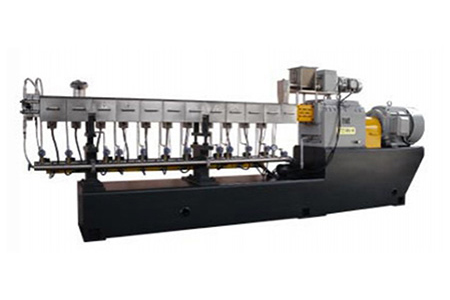Copyright © Shanghai Omega Machinery Co., Ltd. All rights reserved.
What are the disadvantages of twin screw extruders?
Jun 11,2023
1. Cost Considerations
One of the primary disadvantages of twin screw extruders is their cost. These machines are typically more expensive to purchase and maintain compared to their single screw counterparts. The intricate design and engineering involved in twin screw extruders contribute to their higher price tag. Moreover, the complexity of their operation often requires skilled operators, which can add to the overall cost.
2. Size and Space Requirements
Twin screw extruders are generally larger and heavier than single screw extruders. Their size and weight can pose challenges, especially for smaller production facilities or those with limited floor space. Additionally, the installation of twin screw extruders may require structural modifications or reinforcements to support their weight, which further adds to the expenses.
3. Higher Energy Consumption
Another disadvantage associated with twin screw extruders is their higher energy consumption. The presence of two screws rotating simultaneously requires more power compared to a single screw extruder. This increased energy demand can translate into higher operational costs and impact the overall profitability of the manufacturing process. It is important to carefully evaluate energy requirements and efficiency when considering the use of twin screw extruders.
4. Learning Curve and Maintenance
Twin screw extruders are more complex machines that often come with a steeper learning curve. Operators need to have a thorough understanding of their operation, control systems, and process variables to ensure optimal performance. Additionally, the maintenance of twin screw extruders can be more time-consuming and challenging compared to single screw extruders. Regular cleaning, screw replacement, and other maintenance tasks require specialized knowledge and can result in downtime if not executed properly.
5. Material Wastage
In some applications, twin screw extruders may result in increased material wastage. The design of these extruders may not be suitable for processing certain materials efficiently, leading to higher scrap rates. This can have a negative impact on the production costs and overall sustainability efforts of a company. Proper material selection and testing are crucial to mitigate this disadvantage and optimize material utilization.
6. Limited Application Range
While twin screw extruders excel in various tasks, they may not be suitable for every application. Certain materials or processing requirements may be better served by alternative extrusion technologies. It is essential to carefully assess the specific needs of your project and consult with experts to determine whether a twin screw extruder is the best choice for your application.
Prev News Next News
- Information
- How should one select the molding equipment when generating PP water supply pipes?
- Why do the surfaces of extruded profiles have weld marks when extruding? What are the solutions to eliminate these marks?
- Why do large, dull and unreflective bubbles appear on the surface of the special profiles? How can this problem be solved?
- What causes the uneven surface and poor gloss of the sheet during the sheet extrusion process? How can it be solved?
- Why does the cooling process for profile extrusion become unbalanced?
- What countermeasures can be taken to improve the dimensional and positional accuracy of profiles during the profile production process?
- How should profile molds be cleaned and maintained?
- What are the corresponding solutions to the phenomenon of grooves and pits on the surface of profiles?
- How should the raw materials be selected in the formula for PVC surface skin core layer microcellular foamed extruded profiles?
- How should the production process of biaxially oriented polyethylene terephthalate (BOPET) film be controlled?
- Contact Us

-
Shanghai Omega Machinery Co., Ltd.
Add.: No.168 Hualian Road, Putuo District, Shanghai City
Contact: Nina
Tel.: +86-021-69921527
Mobile: +86-15021464410
Fax: +86-021-69921567
E-mail: omegajessica@163.com;965425705@qq.com
WeChat No.: 1131449532
Whatsapp: +86 159 0054 6558

-
